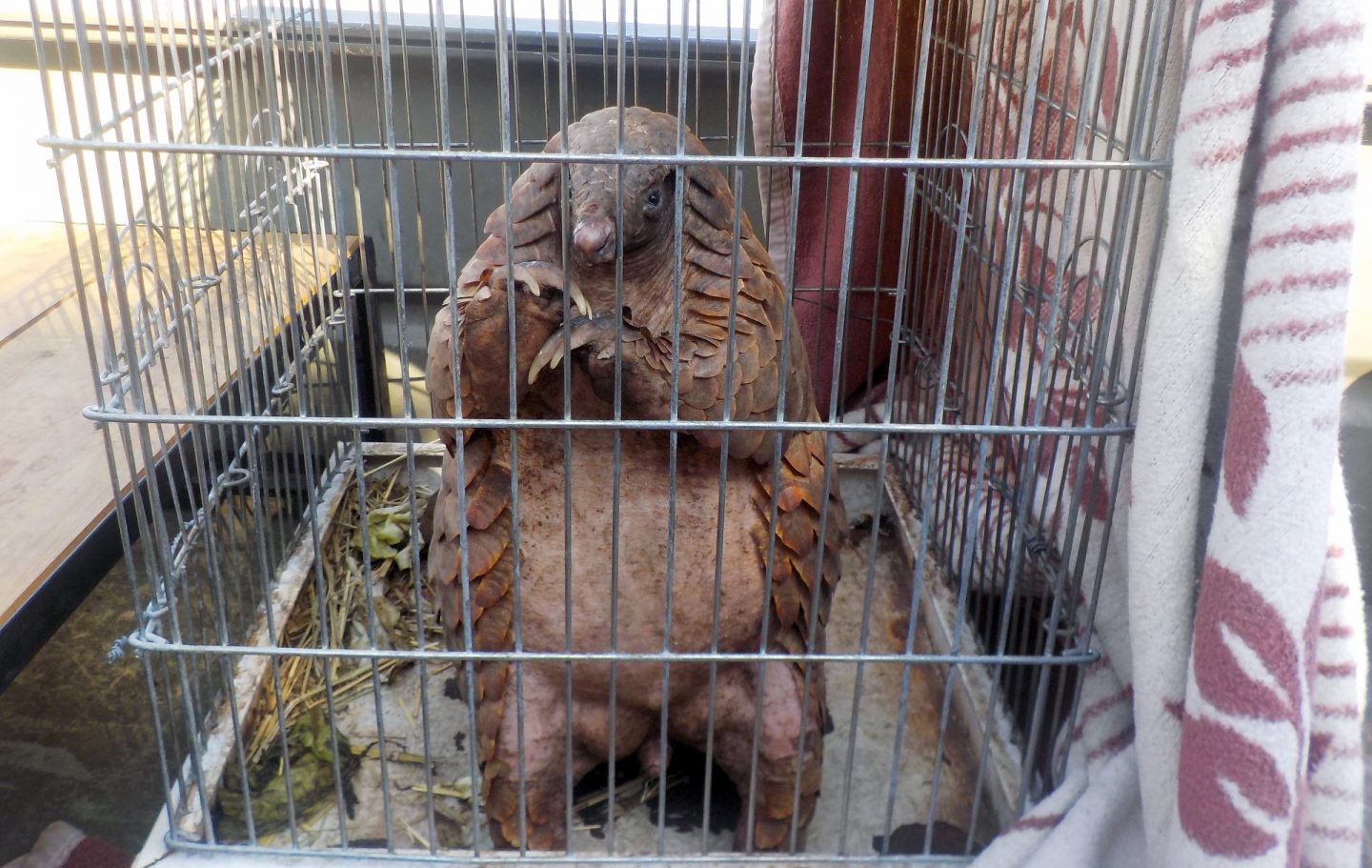
Vulnerable
Description
Pangolins have large, protective scales made of keratin (the same protein as hair, finger nails, rhino horn etc.) are also known as scaly anteaters. All eight species (four African and four Asian) are mostly solitary and nocturnal, and live either in hollow trees or burrows, depending on the species.
Lifespan
Little data, but up to 20 years.
Population
All four of Africa’s pangolin species are classified vulnerable. Because of their secretive, nocturnal behaviour, reliable data on the size of their populations is not available. All populations are thought to be decreasing.
Habitat & Range
Temmick’s ground pangolin is the most widespread of the African species, in savanna woodland throughout much of Central, East and Southern Africa. The giant ground pangolin, and black-bellied and white-bellied pangolins are found in the forests of Central and West Africa.
Diet
Pangolins use their long tongues to eat mainly termites and ants.
Threats
Pangolins are the most trafficked mammals in the world, with their ground-up scales used in alternative medicine or their meat considered a delicacy in East Asia.
Conservation
Pangolins are found in many national parks and other protected areas across Africa, and by protecting their habitat, pangolins receive protection. A number of Tusk’s project partners are helping pangolins in this way. Efforts are also being scaled up to prevent the illegal trade in pangolin and their body parts, but more information on their populations is required to protect them effectively
